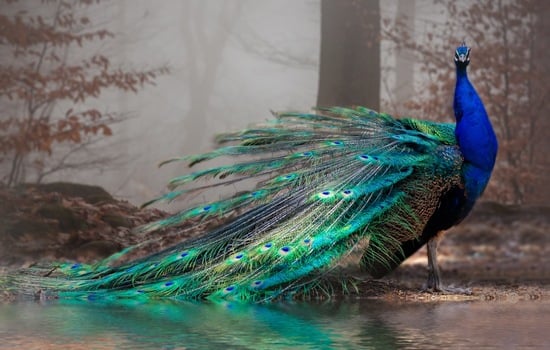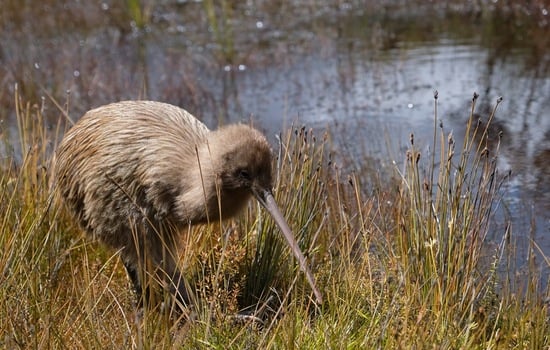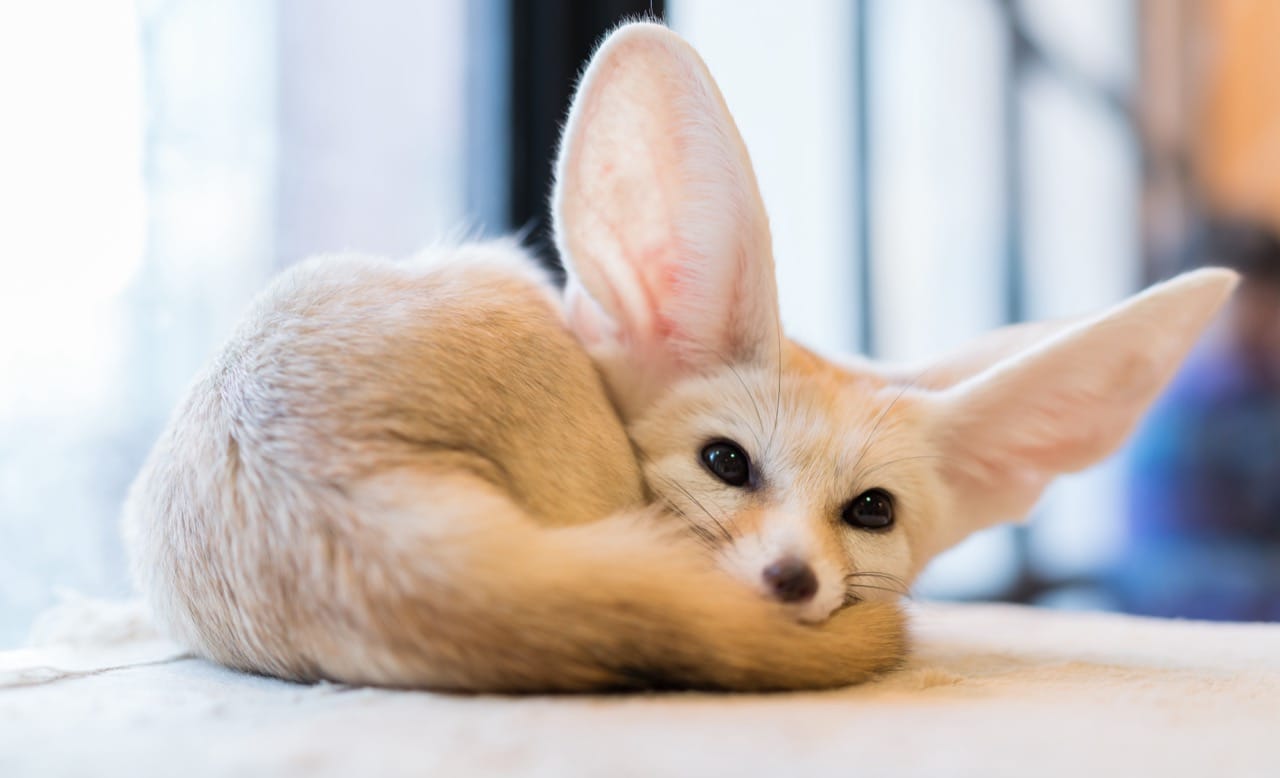
In the vast, golden sands of the desert, where the sun reigns supreme, and the winds whisper ancient tales, roams a creature as enigmatic as the landscape itself. The Fennec Fox, with ears that tell stories of adaptation and eyes that reflect the moon’s glow, is nature’s testament to the beauty of resilience. Before we embark on this journey through the dunes, here's a fascinating tidbit: the Fennec Fox is capable of living without free-standing water. Instead, they are masters of hydration, extracting needed moisture from their food, a skill that cements their status as desert royalty.
A Brush with Origins
The Fennec Fox (Vulpes zerda) dances on the line between myth and reality, a creature woven from the threads of desert lore and evolutionary marvel. Native to the Sahara Desert and parts of North Africa, this fox has etched its existence into the harsh tapestry of arid landscapes, where life hangs in a delicate balance. Their evolutionary journey is one of fine-tuning, adapting each trait to thrive in an environment that is as relentless as it is majestic.
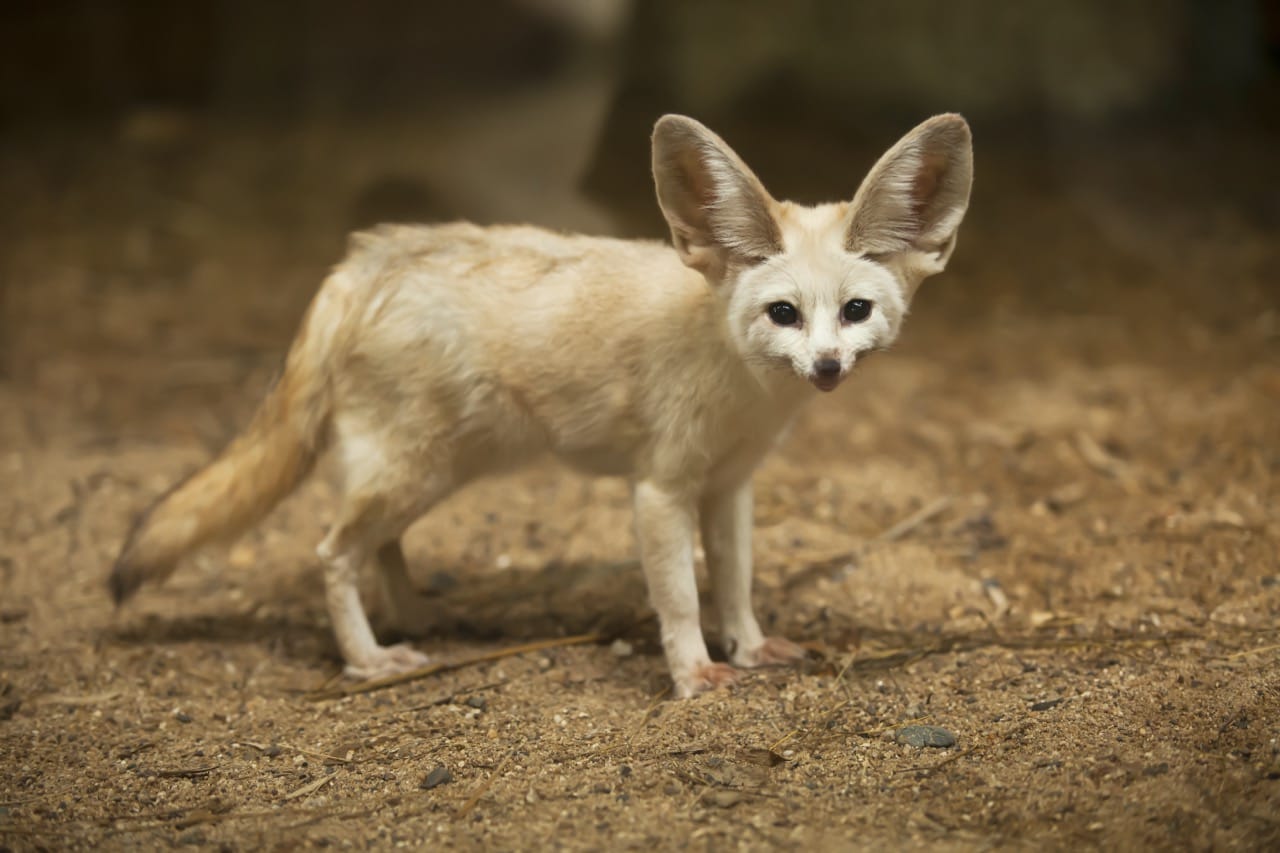
The Canvas of Adaptation: Physical Characteristics
The most striking feature of the Fennec Fox is undoubtedly its large, bat-like ears, which serve a dual purpose. Not only do they act as natural air conditioners, dissipating heat to keep the fox cool, but they also provide an acute sense of hearing, able to detect prey moving underground. Covered in a coat of cream-colored fur that reflects the desert sun, the Fennec Fox is a mirage made flesh, blending seamlessly into the sandy hues of its home. Weighing in at just 2-3 pounds and measuring about 14-16 inches in length (not including their 8-inch tail), they are the smallest of all the world’s foxes.
Realm of Sand: Habitat
The Fennec Fox is synonymous with the Sahara Desert, but its range extends to the arid regions of North Africa and the Sinai Peninsula. These areas are characterized by sand dunes, sparse vegetation, and rocky terrain, offering a challenging yet surprisingly biodiverse habitat. The foxes make their homes in dens dug deep into the sand, a natural fortress against the extremes of desert temperatures and potential predators.
Oasis of the Night: Feeding and Foraging
As nocturnal beings, Fennec Foxes emerge in the cool of the night to hunt and forage. Their diet is impressively varied, encompassing insects, small mammals, birds, and eggs, supplemented by fruits and leaves that provide necessary moisture. This eclectic menu showcases the Fennec’s opportunistic feeding habits, a key to survival in an environment where resources are often fleeting and scattered like the sands.
Social Sands: Behaviour
Contrary to the solitary nature of many fox species, Fennec Foxes exhibit a strong social structure. They live in packs, often consisting of a mating pair and their offspring across multiple generations. This pack structure not only aids in the defense of territory but also in the communal rearing of pups, a testament to the complex emotional and social intelligence of these desert dwellers. Communication within the pack is a symphony of yips, barks, and howls, each note carrying information vital to the collective well-being.
Echoes of Ancestors: Reproduction and Lifespan
The mating rituals and reproductive cycles of the Fennec Fox are attuned to the rhythms of the desert. Mating season typically occurs in the cooler months, with gestation lasting around 50 days. A litter can range from two to five pups, who are born blind and completely dependent on their mother. The den becomes a nursery, a safe haven where the young are nurtured until they can venture outside at about two months old. In the wild, Fennec Foxes can live up to 10 years, a significant lifespan that speaks to their resilience and adaptability.
Shadows and Predators
Despite their cunning and agility, Fennec Foxes are not without threats. Predators include the larger inhabitants of the desert, such as eagles, owls, and jackals. Human activities, including hunting and the illegal pet trade, pose significant risks. Yet, it is the encroachment of humanity into their natural habitats that stands as the greatest threat, a challenge that demands not only adaptation from the foxes but also awareness and conservation efforts from humans.
Whispers of Conservation
The Fennec Fox, while not currently listed as endangered, faces challenges that could threaten its future. Conservation efforts are focused on habitat preservation and the regulation of the pet trade. Awareness and education about the unique needs and challenges of these desert foxes are crucial in ensuring their survival for generations to come.
Beyond the Dunes: Cultural Significance
In the cultures that share the desert with the Fennec Fox, it is often surrounded by tales of magic and
mystery. Seen as guardians of the desert, their elusive nature and nocturnal habits have inspired folklore that portrays them as wise beings, holding the secrets of the sands. Beyond folklore, their appeal has spread globally, capturing the imagination of people worldwide with their distinctive appearance and endearing behaviors.
A Desert’s Melody
The story of the Fennec Fox is a harmonious blend of resilience, adaptation, and the sheer will to thrive. In the vast, silent expanse of the desert, they are a reminder of life’s persistence, of the beauty that arises in the face of adversity. As we continue to unravel the mysteries of these desert whisperers, let us also remember the role we play in their preservation. In protecting them, we safeguard a part of our world’s natural heritage, ensuring that the melody of the desert, and the whisper of the Fennec Fox, continues to echo through the ages.
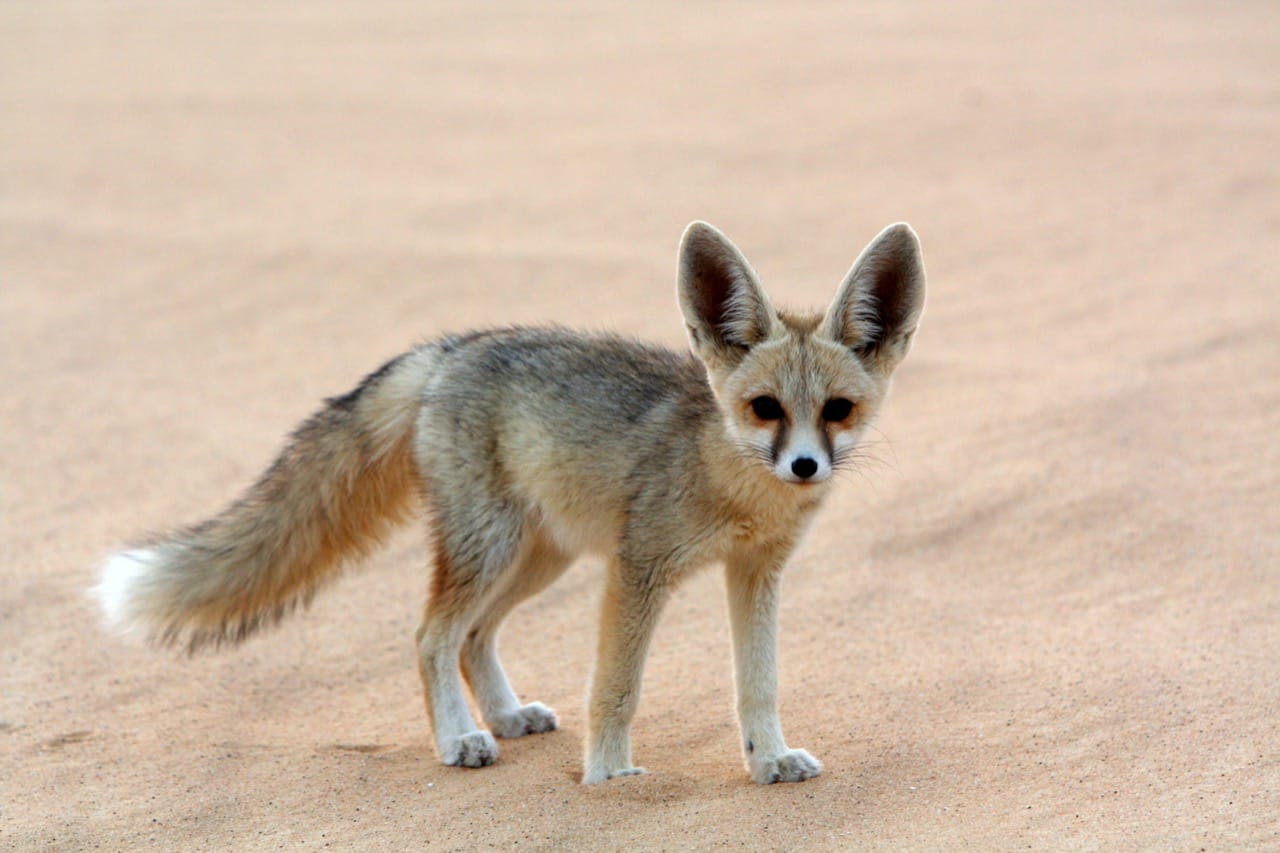




.jpeg)


